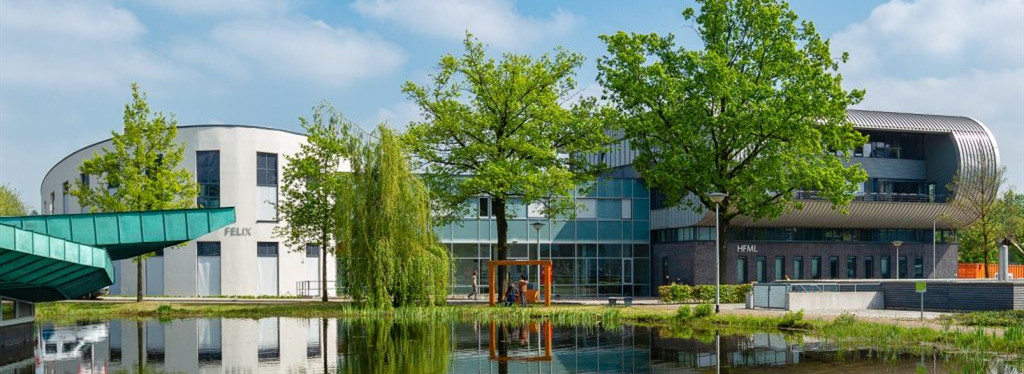
The FELIX (Free Electron Lasers for Infrared eXperiments) Laboratory at Radboud University in the Netherlands has the threefold mission to innovate with the development of its advanced infrared and THz sources, to explore through its in-house research program and to operate for an internal user community its infrastructure and instrumentation. To this end it exploits a suite of intense, short-pulsed infrared and THz free-electron lasers that are used for the research of matter both by in-house as well as national and international external users. The four lasers FELIX-1, FELIX-2, FELICE and FLARE each produce their own range of wavelengths and together, they provide a tuning range between 3 and 1500 μm.
The infrared radiation of the FELIX lasers interacts with molecules and materials. This can reveal detailed information about 3D structure, functional properties and electronic properties. The local research program is executed in several groups: FELIX Infrared and THz Spectroscopy; FELIX FEL Technology; Condensed Matter Physics and Molecular Structure and Dynamics.
The FELIX Laboratory is a large facility that is open for external users with projects selected by the Programme Advisory Committee. Very regular users maintain their own (more or less) permanent set-ups, which may also be used by external users.
The primary applications are found in areas benefitting either from the high brightness or the high fluence of the light sources. In 16 experimental stations, advanced auxiliary equipment such as FTICR mass spectrometers, molecular beam machines and four-wave-mixing setups are available to the users. Worldwide unique stations are those connected to FELICE for intra-cavity experiments as well as to the high field magnet laboratory (HFML), the latter enabling experiments in quasi-continuous fields up to currently 35 T.
The FELIX Laboratory is located at Radboud University in Nijmegen, the Netherlands. Radboud University was established in 1923. It is a broad, international, student-oriented research university. It has currently seven faculties with more than 5.000 employees and enrols more than 20.000 students. The FELIX Laboratory is part of the Faculty of Science and scientifically embedded in the Institute for Molecules and Materials.